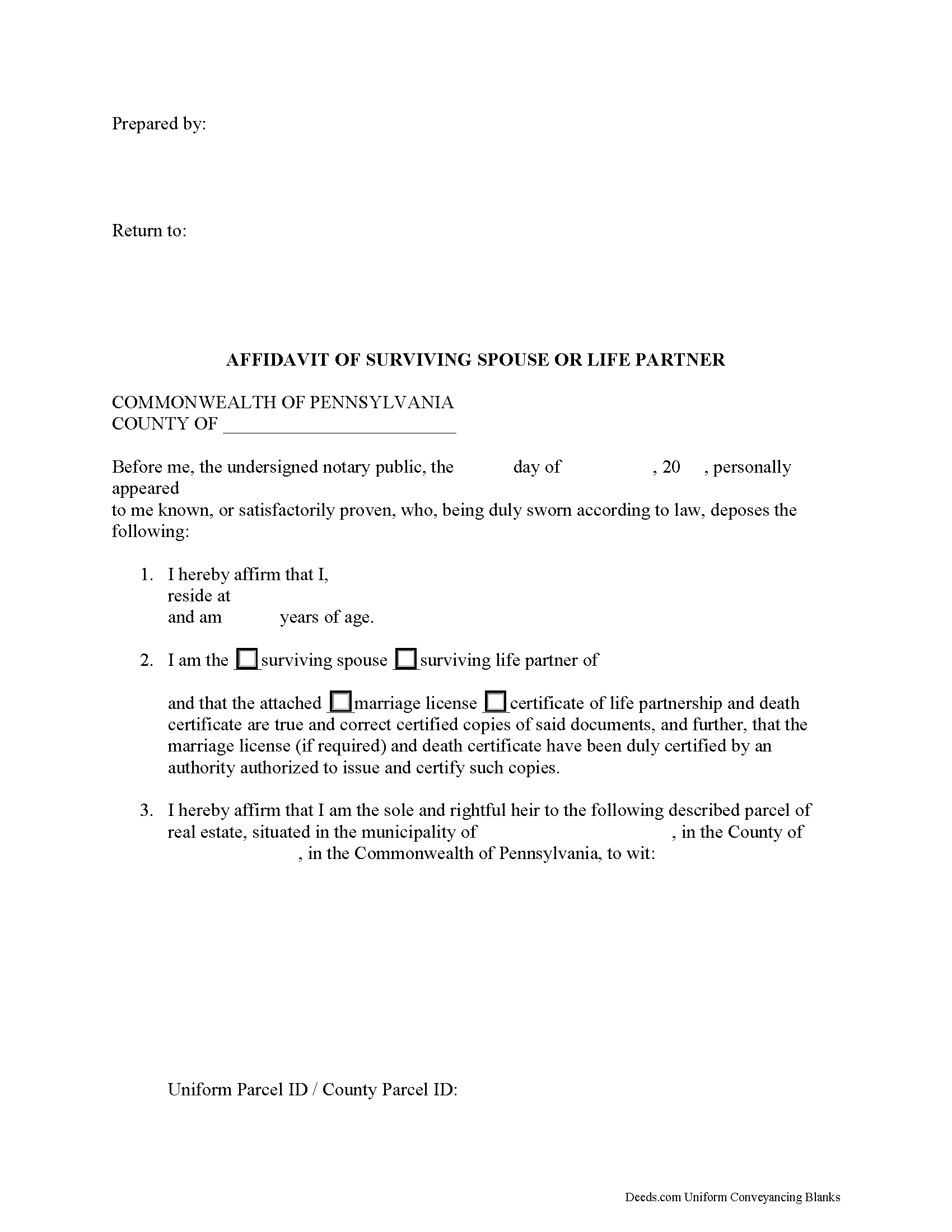Download Pennsylvania Affidavit of Surviving Spouse Legal Forms

Pennsylvania Affidavit of Surviving Spouse Overview

Using an Affidavit of Surviving Spouse or Life Partner in Pennsylvania
The manner of vesting, or the way owners hold title to real property, determines what will happen to that property in the event of their death.
The three options available to co-owners vesting residential real property in Pennsylvania are tenancy in common, joint tenancy, and tenancy by the entirety. A tenancy in common and a joint tenancy are available to two or more owners, whereas a tenancy by the entirety is available only to married couples.
When co-owners vest as tenants in common, each one owns a separate share of the title. A joint tenancy with the right of survivorship means that, upon the death of one joint tenant, the deceased's interest in the property is proportionately distributed to the remaining joint tenants, thus avoiding probate. In tenancy by entirety, both spouses share 100% undivided ownership of the property. Similar to joint tenancy, when the first spouse dies, his or her interest in the property ceases, meaning the surviving spouse becomes the sole owner.
Pennsylvania property held in either a joint tenancy or a tenancy by the entirety vests automatically in the survivor(s) upon the death of an owner. This means that a deed is not required to transfer the decedent's interest. Rather, an affidavit of surviving spouse or life partner may be recorded in the office of the recorder in the appropriate county evidencing the surviving spouse's right to the decedent's interest. Such a document helps to maintain a clear chain of title (ownership history) and may be useful in future title searches.
Affidavits must meet standards for recording in the state of Pennsylvania as well as the requirements for affidavits pertaining to interest in real property as established by 21 P.S. 453, and requires the name, address, and age of the affiant, as well as a legal description of the real property concerned. Further, it states that the affiant was either the legal spouse or life partner of the decedent, and indicates that the supporting documentation -- the death certificate of the decedent and either a marriage license or a certificate of life partnership -- are authorized copies. The affiant makes the sworn statements contained within the affidavit in the presence of a notary public, declaring that they are true, correct, and complete to the best of his or her knowledge.
Each case is unique, so consult a lawyer with questions.
(Pennsylvania AOSS Package includes form, guidelines, and completed example)